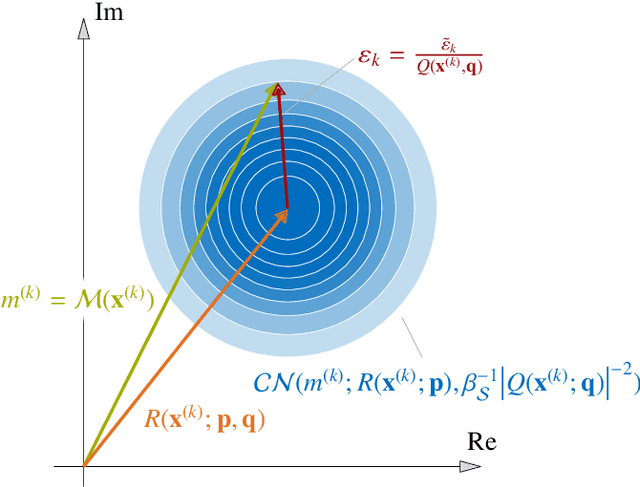Maximum a Posteriori Estimation for Linear Structural Dynamics Models Using Bayesian Optimization with Rational Polynomial Chaos Expansions
Paper and Code
Aug 07, 2024



Bayesian analysis enables combining prior knowledge with measurement data to learn model parameters. Commonly, one resorts to computing the maximum a posteriori (MAP) estimate, when only a point estimate of the parameters is of interest. We apply MAP estimation in the context of structural dynamic models, where the system response can be described by the frequency response function. To alleviate high computational demands from repeated expensive model calls, we utilize a rational polynomial chaos expansion (RPCE) surrogate model that expresses the system frequency response as a rational of two polynomials with complex coefficients. We propose an extension to an existing sparse Bayesian learning approach for RPCE based on Laplace's approximation for the posterior distribution of the denominator coefficients. Furthermore, we introduce a Bayesian optimization approach, which allows to adaptively enrich the experimental design throughout the optimization process of MAP estimation. Thereby, we utilize the expected improvement acquisition function as a means to identify sample points in the input space that are possibly associated with large objective function values. The acquisition function is estimated through Monte Carlo sampling based on the posterior distribution of the expansion coefficients identified in the sparse Bayesian learning process. By combining the sparsity-inducing learning procedure with the sequential experimental design, we effectively reduce the number of model evaluations in the MAP estimation problem. We demonstrate the applicability of the presented methods on the parameter updating problem of an algebraic two-degree-of-freedom system and the finite element model of a cross-laminated timber plate.
 Add to Chrome
Add to Chrome Add to Firefox
Add to Firefox Add to Edge
Add to Edge